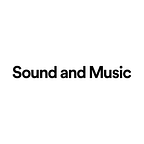We paused, we must now act — how fair access has to be at the heart of the new normal
Words by Susanna Eastburn MBE
On 25 February 2020, Sound and Music launched our Fair Access Principles. Developed and tested over many months with composers and partner organisations, their aim is to remove the many non-musical barriers that can prevent composers from fairly accessing artist development opportunities and programmes.
Less than a month later, the UK went into lockdown, causing the immediate cessation of all live musical performance and physical meetings. At the time of writing the future is still very unclear, as arts organisations, policy-makers, funders and artists themselves cope with huge structural uncertainties with implications for everybody working in the arts.
What is clear, though, is that while the shift to digital has helped improve accessibility for some people (your geographical location is, for the most part, no longer a barrier to engagement; and being in the familiarity of your own home environment can help increase confidence) for others the situation has worsened.
The COVID-19 emergency has underlined the additional barriers and disadvantages that people might face based on their race (with a proportionately higher mortality rate for Black, Asian and ethnically diverse people), whether they are disabled (many disabled people have underlying health issues that make the dangers of the virus very significant, and the pandemic is having a very negative impact on their wellbeing, not least because disabled people are more likely to be self-isolating), whether they are from a lower socio-economic group, and gender.
On Tuesday 2 June, across the world the music industry stopped, following the murders of George Floyd, Breonna Taylor and Ahmaud Arbery.
#theshowmustbepaused, an initiative created by Jamila Thomas and Brianna Agyemang, was a call to the music industry to acknowledge, observe and proactively address the long-standing racism and inequality that exists in our industry.
It was encouraging to see so many music organisations condemn racism so unambiguously. But it was also a reminder that we have so much further to go to address systemic issues and lack of understanding that cause us, still, to be an industry where Black, Asian and ethnically diverse people are still so woefully under-represented.
Arts Council England have affirmed that their 10 year strategy, Let’s Create, will shape their decisions as we all move through the stages from response to stabilisation to reset, including their focus on ensuring that diversity remains at the heart of their funding and their advocacy. That is good.
But all too often the arts, including our corner of them in new music, can think of diversity as a series of external shortcomings to be solved. So there are excellent and influential programmes, projects and schemes for women, Black, Asian and ethnically diverse and disabled musicians, artists and composers; but limited consideration of the many elements in their training and development that mean, quite simply, that some people find it much harder than others (or even impossible) to pursue a creative career.
And even more limited consideration is given to how these barriers (including lack of visibility, education, access needs and financial circumstances to name but a few) may be systematically addressed at every stage.
All of this brings home the fact that as we begin to think about the future and to take action, the systemic changes that Sound and Music’s Fair Access Principles are seeking are more urgently needed than ever before.
As the UK’s arts ecology begins to think about how it might recover from the financial, social, emotional and physical impact of COVID-19, and as our sector — I sincerely hope — delivers on all the fine sentiments expressed during the #theshowmustbepaused, we must all look at who is in these conversations, whose voices are lacking and who are we really representing. This has never felt so important.
What kind of musical landscape do we want to see in the future? One in which the widest possible range of people can explore their creative talent, to create powerful, moving and relevant music, that speaks to our times?
Or one where we fail to step up, fail to listen, fail to confront our individual and collective issues, fail to change, fail to make this more equal and to address the important lessons we’ve learnt during these extraordinary few months?
Those of us who work in music, and want to work with composers and artists who are more representative of our society (and there are dozens of reasons why this is a good idea, the future of music being just one of them) have an opportunity now to be part of renewing, not just rebuilding, our beloved and hard hit art form. To build something better. Will you join us in that work?
You can find out more about the Fair Access Principles, and sign up to them, here.
